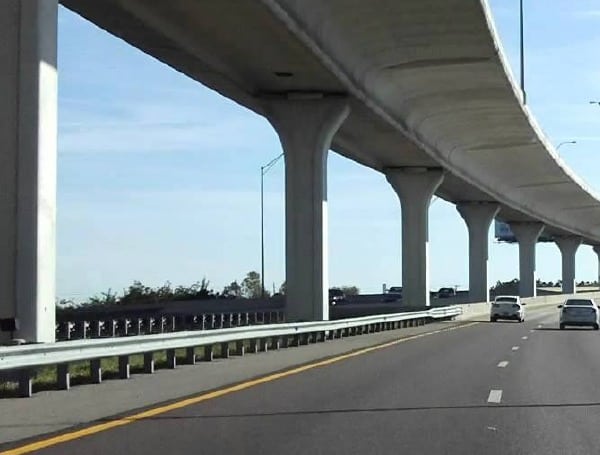Homeowners ravaged by Hurricane Ian and Hurricane Nicole and toll-road commuters would get help in two bills that call for more than $1.25 billion in spending, as the Legislature meets this week in a special session.
The Senate Community Affairs Committee on Monday unanimously backed a measure (SB 4-A) that would provide refunds for property taxes on homes made uninhabitable by the recent hurricanes. The proposal also would fund beach-renourishment programs, storm-relocation costs for homeowners and renters and the creation of a non-profit disaster-response support organization.
“What this bill does outside of the direct-support organization … is put cash back into our local governments, back into the individuals that were truly hurt by this storm, or both storms,” bill sponsor Travis Hutson, R-St. Augustine, said. “The process and the programs are already there. They’ve already been vetted. We really are just trying to take dollars from the state … to give back down to the local level so people can get back to their normal daily lives.”
The bill requires $751.5 million from state general revenue.
In the news: Woman Who Watched Her Boyfriend Kill Six Of His Family Members Gets 25 Years In Prison
Later in the day, the Senate Fiscal Policy Committee unanimously backed the proposal and a separate bill (SB 6-A) that would carry out an effort by Gov. Ron DeSantis to provide bill credits to motorists who frequently use toll roads. The bill would provide $500 million to reimburse the Florida Department of Transportation and other toll agencies to cover revenue that would be lost for road and bridge projects.
Senate Transportation Chairman Nick DiCeglie, R-Indian Rocks Beach, said the toll proposal is aimed at motorists who typically have to drive five or six times a week on toll roads.
“Obviously, with, you know, the inflationary pressures that we’re all experiencing, I believe it’s a good public policy to help folks who are traveling, paying higher gas prices, etc., to give them a monthly savings,” DiCeglie, the bill sponsor, said.
While voting for the program, Sen. Lori Berman, D-Delray Beach, called people targeted in the bill a “narrow class.”
“I’d like to see if there’s something we can do that can benefit a broader class,” Berman said.
The bills are part of a special legislative that started Monday and also includes revamping property-insurance laws. The bills are set to be heard Tuesday on the Senate floor.
Identical proposals (HB 3A and HB 5A) are expected to be heard Tuesday by the House Ways & Means Committee and the House Appropriations Committee. The proposals are expected to pass the full House on Wednesday.
The toll measure expands on a current six-month program that DeSantis put in place. That program offers a 20 percent to 25 percent discount to SunPass and other Florida transponder accounts that surpass 40 toll transactions a month.
Under the bill, a discount of 50 percent would be in effect for a full year starting Jan. 1. The discount would be offered to motorists who record 35 or more transactions a month.
Meanwhile, the hurricane-related bill would, in part, allow tax refunds based on the number of days — starting at 30 — residential structures were left uninhabitable following Ian and Nicole.
Hutson noted the measure doesn’t differentiate between primary and second homes.
“If you’re going to invest in the state of Florida, if something happened to your investment, you should be entitled to get something back,” Hutson said.
While voting for the bill, Sen. Jason Pizzo, D-North Miami Beach, said the money should go to destroyed properties that are primary residences.
In the news: Bradenton Woman Pleads Guilty To Providing False Info When Purchasing Seven Guns
“I’m ultimately a no if this money is not going to Floridians who live here, whose families have been displaced,” Pizzo said. “Not (those) who have a second or third home, and, ‘Oh, our beach house is not available. We’ll have to go somewhere else.’”
Lobbyist Chris Doolin, who represents the Small County Coalition, expressed a need for lawmakers to consider an offset for counties that face significant refunds on properties that were severely damaged.
State economists on Friday estimated that refunds from Ian and Nicole could top $18.5 million, with most in Lee County.
In addition to the refunds, the bill would delay tax deadlines for property destroyed or rendered uninhabitable by the two hurricanes and would designate $350 million so the state Division of Emergency Management can provide a full match for Federal Emergency Management Agency public-assistance grants to local governments affected by the two hurricanes.
Another $150 million would go to the Florida Housing Finance Corp. Of that amount, $60 million would go to local governments to help residents with housing repairs and relocation costs and $90 million for a rental-recovery loan program.
Among other things, the bill would designate $100 million for beach-erosion projects and create a direct-support organization within the Division of Emergency Management for disaster-response, recovery and relief efforts.
Hutson said the agency is limited in donations it can accept from the public and that the change wouldn’t impact efforts such as the Florida Disaster Fund overseen by First Lady Casey DeSantis, which has raised more than $57 million as part of Ian relief.
“This will be for new stuff instead of trying to move money around,” Hutson said. “It’s set up for the future.”
Visit Tampafp.com for Politics, Sports, and National Headlines, or signup for our free newsletter by clicking here.
Android Users, Click Here To Download The Free Press App And Never Miss A Story. Follow Us On Facebook Here Or Twitter Here.

